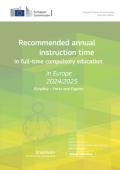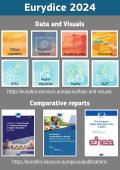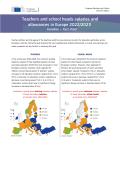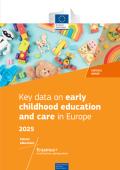Recommended annual taught time in full-time compulsory education in Europe 2012/13
Recommended Annual Taught Time in Full-Time Compulsory Education in Europe 2012/13
Full version EN
Description:
A report targeting the recommended compulsory curriculum by grades/stages for full-time compulsory education 2012/13.
The Eurydice data collection on taught time targets recommended compulsory curriculum by grades/stages for full-time compulsory education. The taught time presented in the national figures corresponds to the most common general education programme in the country concerned. It includes the time spent by a student in receiving instruction on all the subjects integrated in the compulsory core or compulsory flexible curriculum in the school premises or in out-of school activities which are formal part of the programme.
The report presents both data by subject and country as annual compulsory taught time in hours of 60 minutes per grade bearing in mind the number of taught days and weeks per year as well as the number and length of the class periods.
Contents:
Part I: Explanatory And Country Specific Notes
Part II: Taught Time By Subject
Part III: Taught Time By Country





